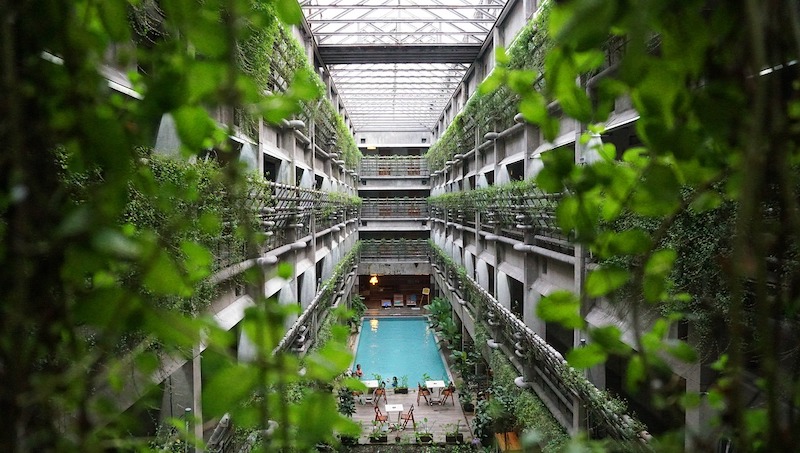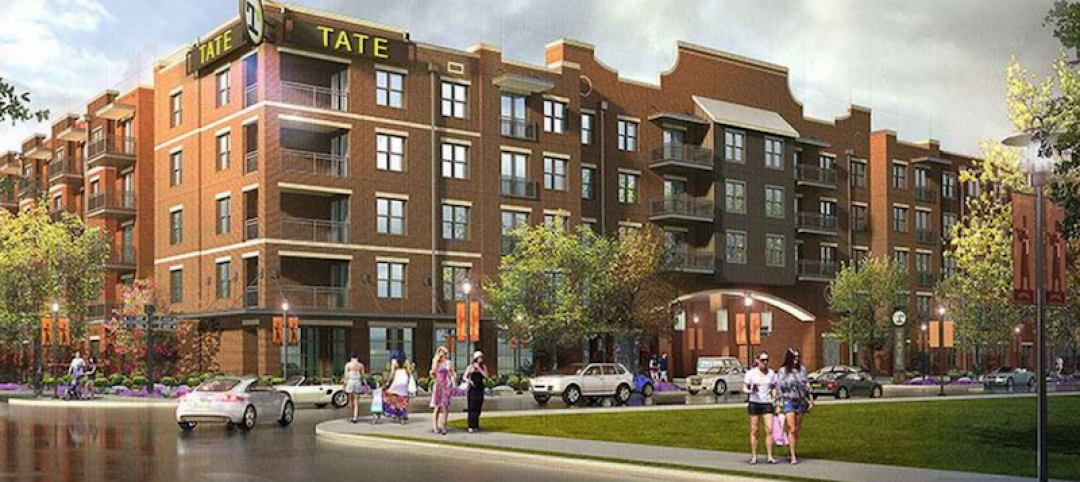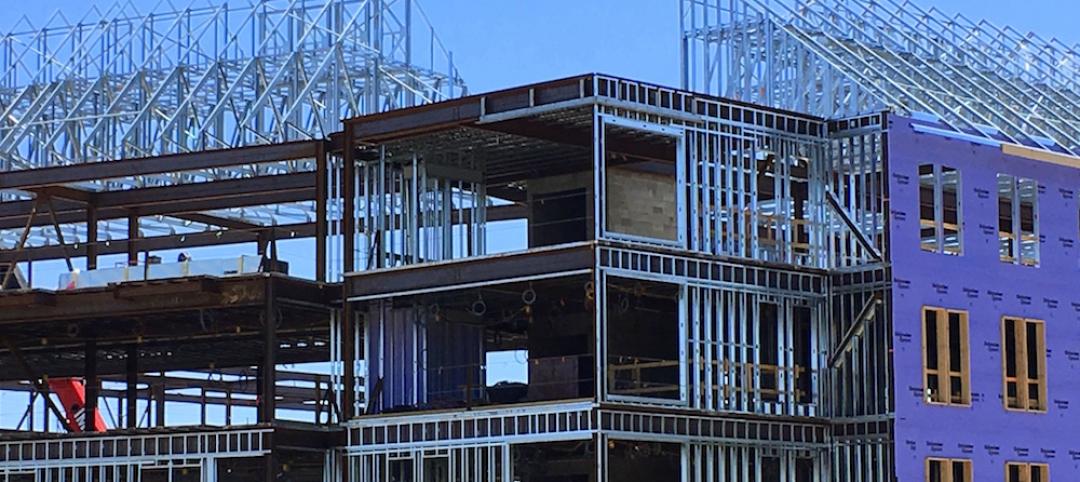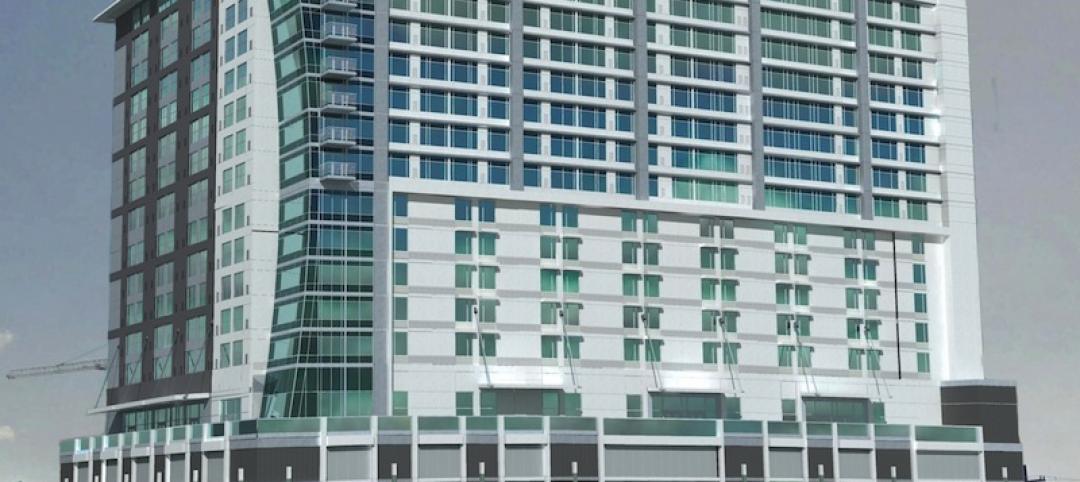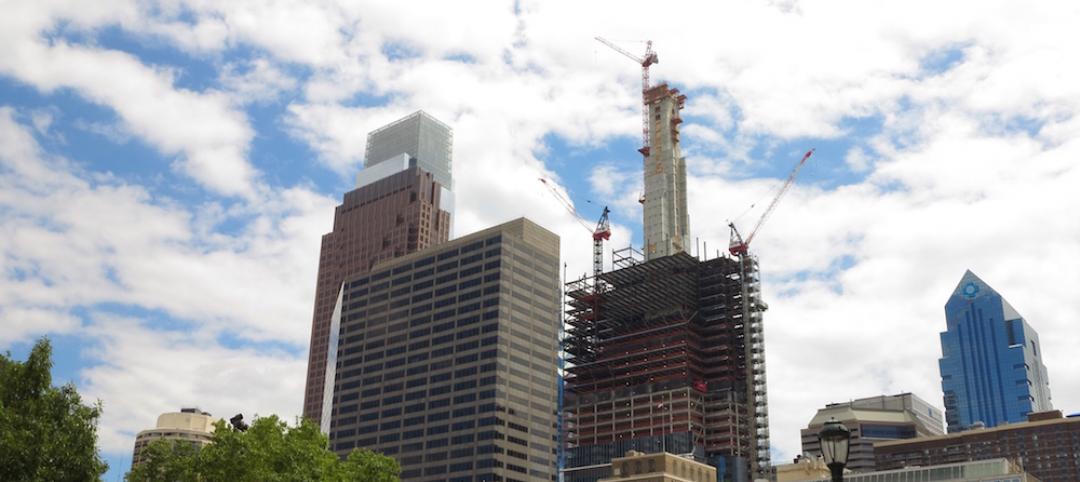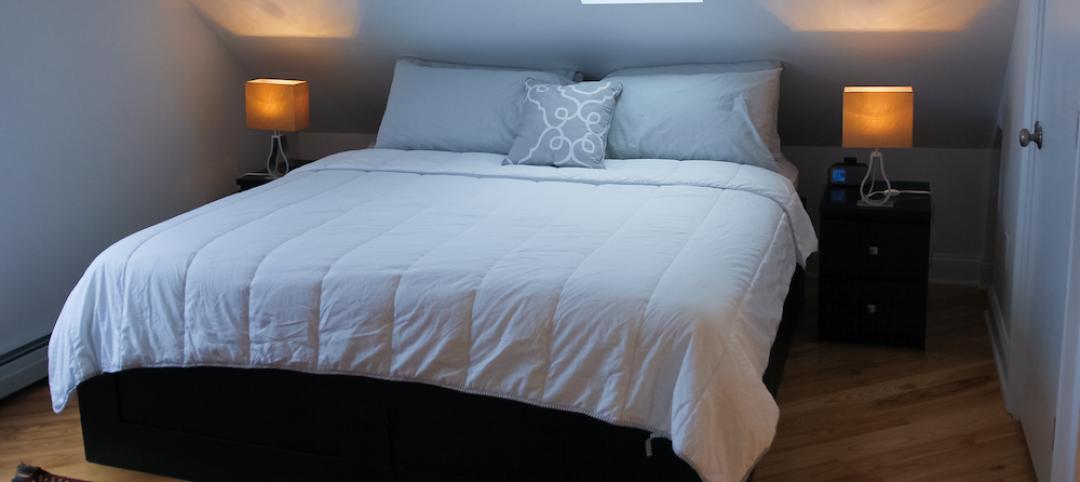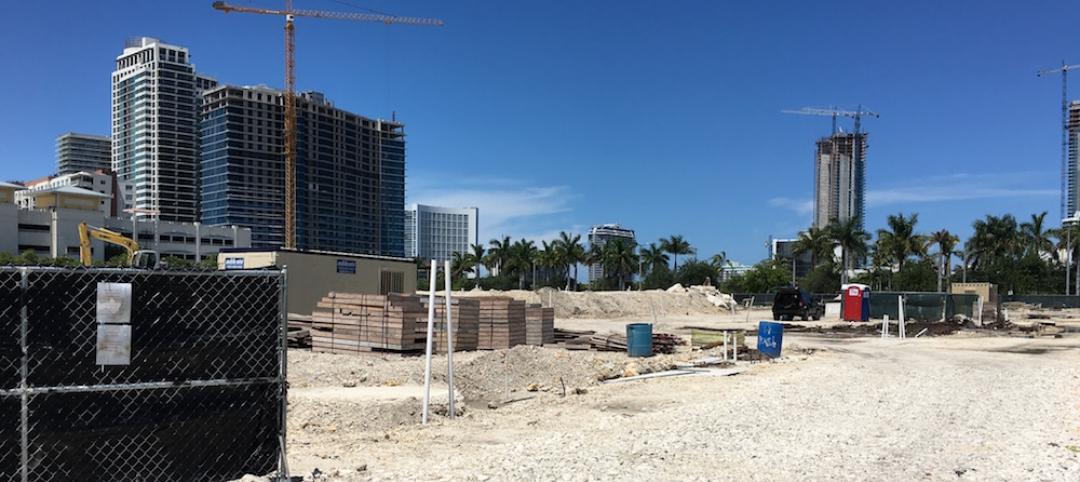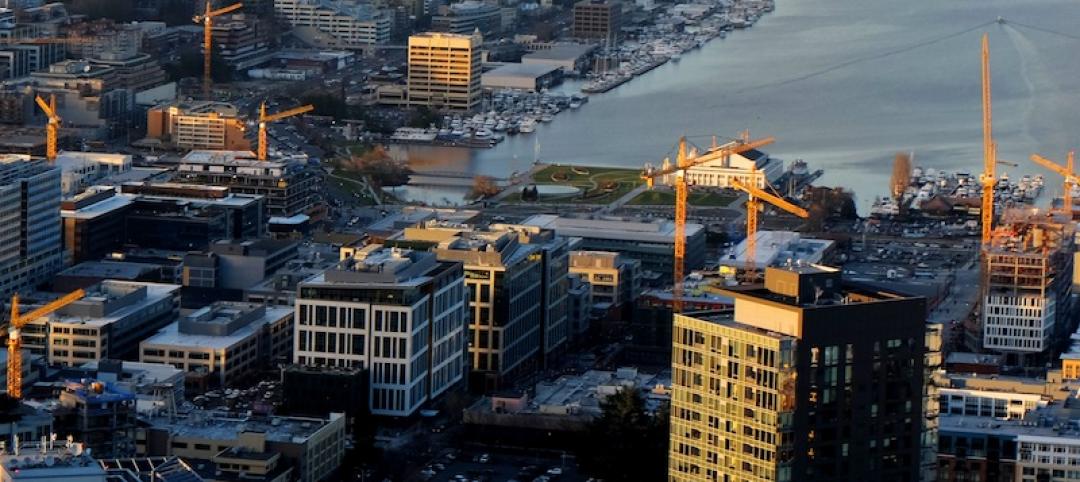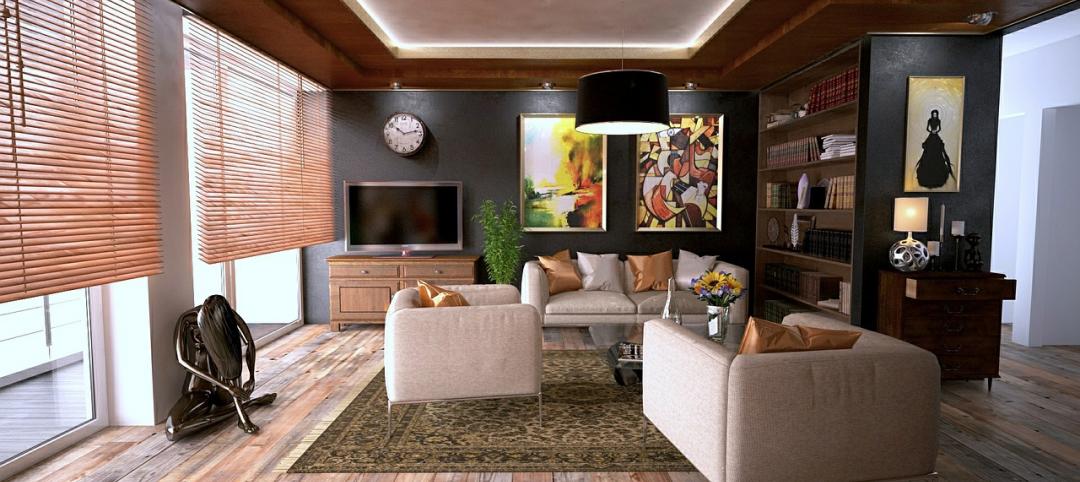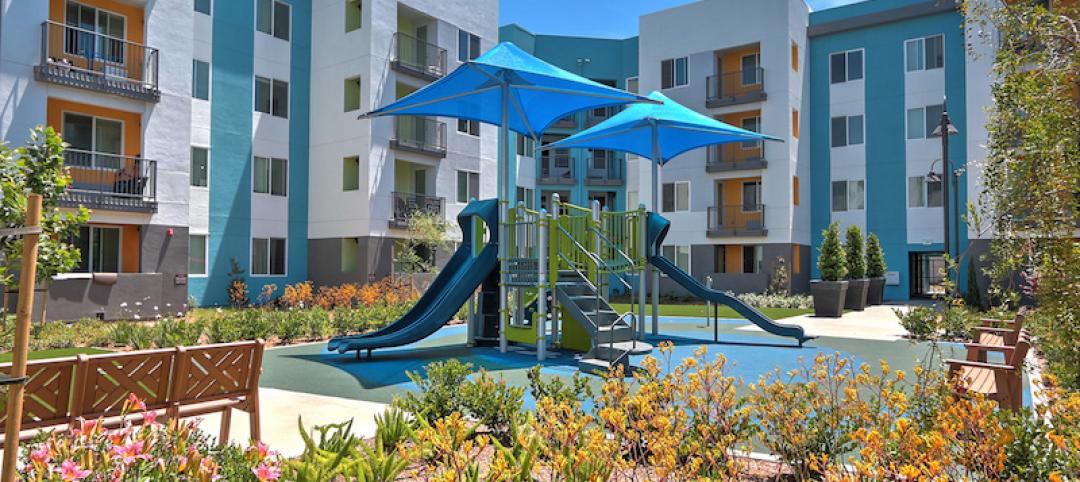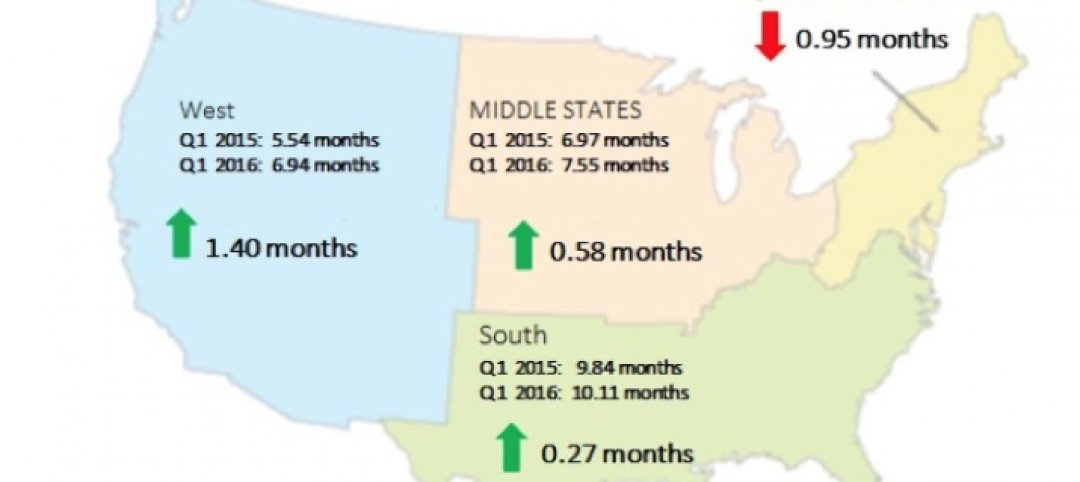The United States is leading the way in Energy and Environmental Design (LEED) green buildings, according to new research by Uswitch.com, the comparison and switching service.
As the country that set up the LEED initiative, the US is a natural leader in constructing green buildings, with 124,200 (124,212) LEED-certified buildings - the most overall in the world. China has over 100,000 fewer buildings than the US, with 5,700 (5,678). However, they still come in second place for the most green buildings. In third place is Canada with just over 3,000 (3,066) green buildings.
The US Green Building Council (USGBC) reports that 40% of worldwide energy usage comes from the construction industry, with it estimated to increase by 1.8% by 2030. With that said, business owners can now achieve LEED-certified buildings, which is an establishment that recognises healthy, highly efficient and cost-saving green buildings.
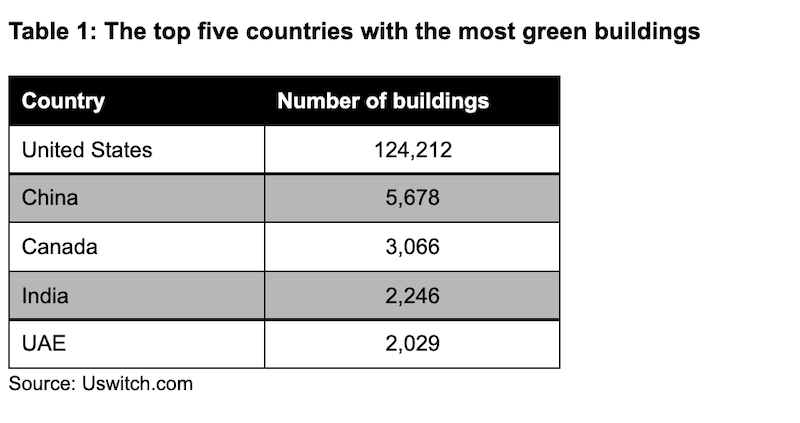
To put the buildings in each country into perspective, Uswitch compared the numbers to every 100K of the population.
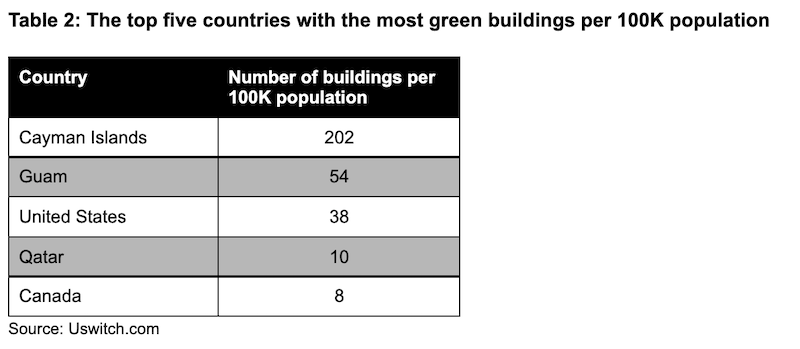
Characteristics of a green building include being in close proximity to public transport to reduce carbon footprint, efficient use of water to reduce the building’s water usage, recycling systems, as well as air cleanliness and noise pollution.
There are different types of buildings that are LEED-rated and are leading the way in sustainability, from the likes of education, healthcare, hospitality, industrial and residential buildings.
If living in a city that is sustainably-aware and is making an effort to reduce carbon emissions is of importance - like it is for many nowadays - the following cities are leading the way with green construction.
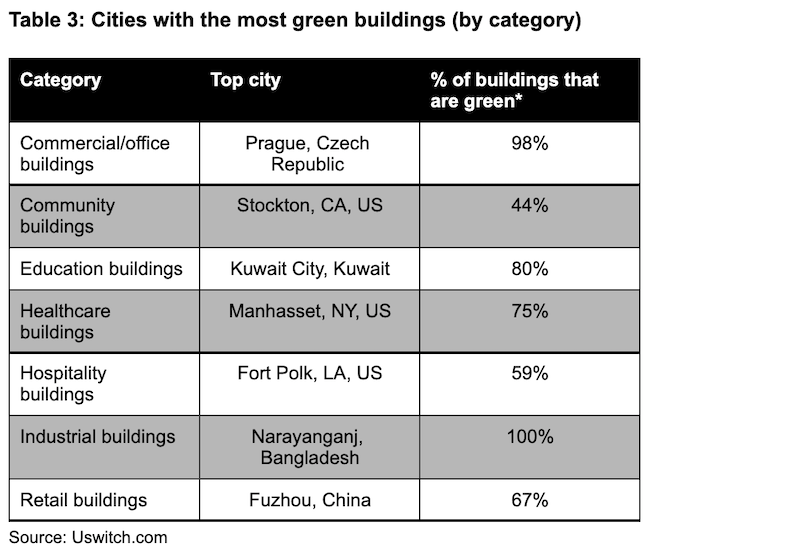
All of the industrial buildings in Narayanganj, Bangladesh, are green-certified. Nearly all (98%) of Prague, Czech Republic’s LEED-certified buildings are used for offices. Following this, 75% of healthcare buildings in Manhasset, United States, are green.
-
Country and city totals were compiled based on the LEED Projects Directory as maintained by the U.S. Green Buildings Council. LEED projects were classified by their end use on the basis of the first use category listed in the "Project Type" field in the Projects Directory database. "Other/Unknown" category incorporates projects that weren't numerous enough to warrant their own category, i.e. "Military" and projects where the type was labeled as "Other" or "Unknown". Projects that were in their planning phase (e.g. designated under LEED-ND), rather than being completed, were excluded from the dataset. Country populations were taken from the World Bank's "Population, Total" indicator. City populations were obtained from Simple Maps "US Cities" and "World Cities" datasets. State populations were taken from the U.S. Census Bureau. Only countries with 50 or more LEED projects were included. Only cities with 20 or more LEED projects were included. LEED projects, where location was listed as "Confidential" or partial, i.e. only indicating country or its subdivision (state, province), but specifying country were included in the country totals, but excluded from city totals. Data was collated in Apr 2021.
-
Source: Gocontractor.com: How does construction impact the environment?
-
Source: Iberdrola.com: The 'green' buildings are leading the way to more sustainable and efficient urban planning
Related Stories
Multifamily Housing | Aug 12, 2016
Apartment completions in largest metros on pace to increase by 50% in 2016
Texas is leading this multifamily construction boom, according to latest RENTCafé estimates.
Market Data | Jul 29, 2016
ABC: Output expands, but nonresidential fixed investment falters
Nonresidential fixed investment fell for a third consecutive quarter, as indicated by Bureau of Economic Analysis data.
Industry Research | Jul 26, 2016
AIA consensus forecast sees construction spending on rise through next year
But several factors could make the industry downshift.
Architects | Jul 20, 2016
AIA: Architecture Billings Index remains on solid footing
The June ABI score was down from May, but the figure was positive for the fifth consecutive month.
Market Data | Jul 7, 2016
Airbnb alleged to worsen housing crunch in New York City
Allegedly removing thousands of housing units from market, driving up rents.
Market Data | Jul 6, 2016
Construction spending falls 0.8% from April to May
The private and public sectors have a combined estimated seasonally adjusted annual rate of $1.14 trillion.
Market Data | Jul 6, 2016
A thriving economy and influx of businesses spur construction in downtown Seattle
Development investment is twice what it was five years ago.
Multifamily Housing | Jul 5, 2016
Apartments continue to shrink, rents continue to rise
Latest survey by RENTCafé tracks size changes in 95 metros.
Multifamily Housing | Jun 22, 2016
Can multifamily construction keep up with projected demand?
The Joint Center for Housing Studies’ latest disection of America’s housing market finds moderate- and low-priced rentals in short supply.
Contractors | Jun 21, 2016
Bigness counts when it comes to construction backlogs
Large companies that can attract talent are better able to commit to more work, according to a national trade group for builders and contractors.


